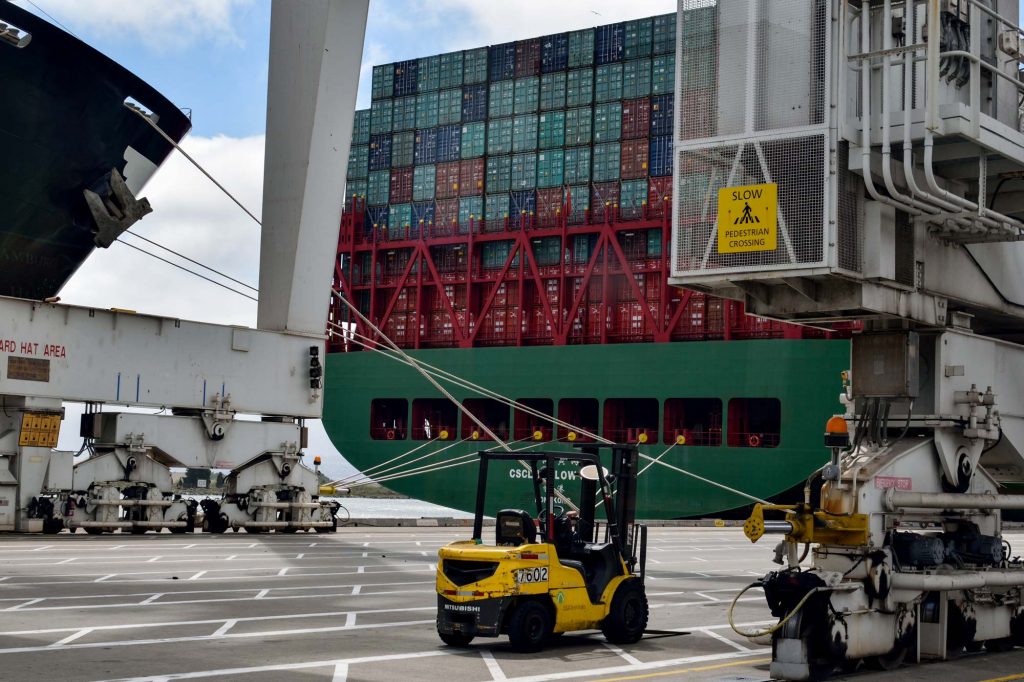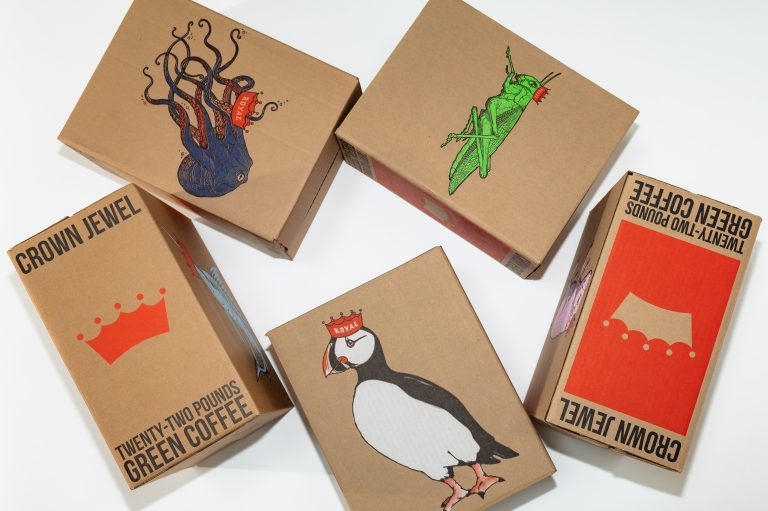A few recent shipments from Mexico brought matters of international shipping to our attention once again, but in a very positive manner. These two shipments in particular came in tasting absolutely fabulous.
So, how come these coffees came in so fresh, and so quick? The answer to this question is bananas. Literally.
The banana industry has mastered the logistics game over the past 100 or so years, even going so far as to fund insurrections and overthrow democratically elected heads of state. But that story is far less appealing (forgive me this one dalliance). Banana companies are completely vertically integrated, owning everything from the means of production, to shipment companies, to distribution.
Part of this distribution network is the Great White Fleet (not to be confused with Theodore Roosevelt’s ‘grand pageant of American sea power’), which is a subsidiary of Chiquita that provides refrigerated transportation from a limited selection of ports, on a fixed schedule. This steady schedule is essential for banana transport, as the crop is even more fragile than coffee. But refrigerated containers aren’t only good for bananas.
Now, there’s more demand than ever for refrigerated containers, known as ‘reefers.’ Don’t start giggling just yet, this is serious business. People want their fruit, flowers, and fresh lobster – and they want them all year ‘round, damn the seasonality torpedoes. What’s more, people are seemingly willing to pay the extra cost for high quality perishable produce.
In comparison to normal freight pricing, shipping in reefers isn’t nearly as volatile. Rates for refrigerated shipping have consistently increased since the drastic wave of carrier consolidation that occurred around the collapse of Hanjin. There is no sign of this trend stopping any time soon.
That high quality produce mentioned above includes coffee, and that brings us back to our two spectacular arrivals from Rosalba Cifuentes Tovia and Alfred Klein. They both utilized Great White Fleet to ship their coffees to us, and credit the alacrity and good service of that shipping company for the success of the shipment. Of course, the cost might be higher than standard shipping, but thankfully you get what you pay for.
So will this type of shipment become common for specialty coffee? This depends of course on many factors. Will multinational steamship lines continue to consolidate, using larger ships with longer loading times at port? Will smaller shippers be willing to use higher cost specialty freight? What of the machinations around bunker fuel prices? Will ships be converted to LNG? There are plenty of angles to consider.
Chiquita, through Great White Fleet, owns their ships, and doesn’t need to worry about as much as larger shipowners about capital expenditure or operating expenses since this money is already sunk into assets, and costs will be quickly amortized by shipments of sweet, sweet bananas. They have economy of scale, and they’re quickly filling the gap in the market and satisfying customers along the way. The entire shipping industry is (as one of our Inbound Traffic team says) a ‘Wild West’ these days, and it’s moving very swiftly indeed.

A Great White Fleet Vessel, Fully Loaded with Coffee (Artist’s Rendering)
***
One doesn’t often see a huge beast moving so quickly, but despite its size the shipping industry is surprisingly agile. It needs to be, to satisfy the needs of 7.6 billion people spread across the planet. Mouths need to be fed, coffee cups need to be filled, and money must be made.
In recent years there have been many trials in the shipping industry leading to consolidation of shipping lines, or even their complete failure. Much has changed in the past few years – when Hanjin collapsed, international trade was stagnating, containerized shipping was oversupplied, and oil prices were quite low. Presently, the Baltic Dry Index is experiencing a recovery, shipping supplies are tight (and looking to be tighter come summertime), and crude oil is becoming more expensive due to tariffs and other political maneuverings.
In the past, Royal Coffee has had contracts with shipping lines, just as some roasters might have coffees contracted through Royal Coffee. While you might lock in your coffee prices to a current market rate, so do we lock in our shipping rates. Shipping rates can fluctuate sympathetically in relation to many factors, and some economists fixate on these rates (such as the Baltic Dry Index) as a primary economic indicator. Oversupply of shipping volume, meaning too many ships or too many available containers, can put a dent in shipping rates. In counterpoint, less availability or high crude oil fuel prices can cause shipping rates to spike, sometimes overnight.
Nowadays, not all shipping companies are allowing customers to lock their rates in on a yearly basis. Sometimes rates expire quarterly, independent from an annual service contract. This means that rates more closely follow the market, but it also means that even the most faithful customers are subjected to the full risk of the shipping market’s fluctuating price structure. In terms of coffee, imagine being a giant coffee company and buying your entire inventory from spot position; it’s possible, but means that you must incur all the risk of price fluctuation. This might help shipping companies stay afloat, but quite honestly it doesn’t make our job any easier. As Kurtis Blow said, these are the breaks.
Regardless of payment structure, a frequent complaint is that shipping lines don’t deliver as expediently as we would like. Frankly, they might not deliver quickly enough for anyone – either on the shipping or the receiving end – and coffee can get ruined while sitting at a muggy, disorganized port.
The situation I referred to in my first shipping article was this: larger ships may be more efficient, but many ports (especially smaller ports) are not able to load them in a timely manner due to their massive size. This is not ideal for sensitive freight like specialty coffee.
So what is it going to be? Specialty freight loads quickly and delivers high quality goods… but usually only ships from a limited number of ports, and is more expensive. Multinational freight companies with giant ships deliver from and to every major port, with marginally cheaper rates. It’s hard to beat convenience especially when the market demands it, and we have to remember that specialty coffee isn’t the only item being shipped.





